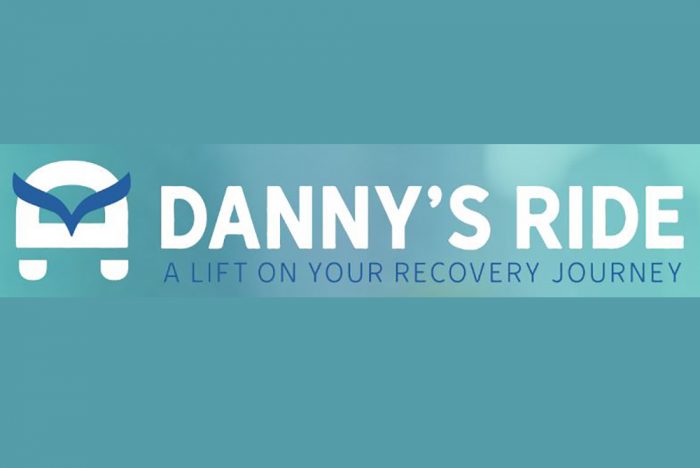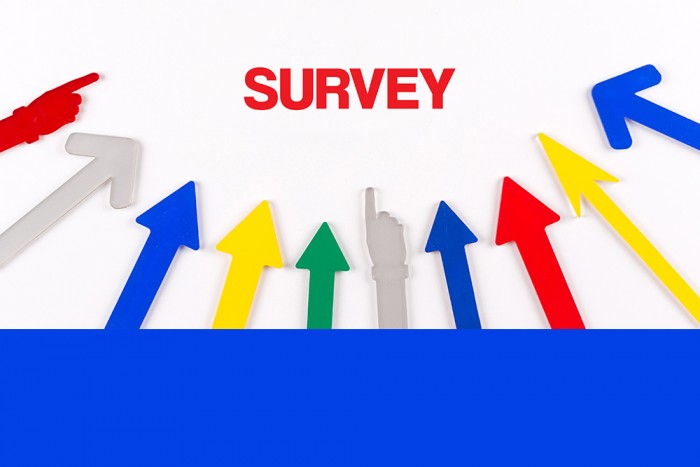Pennsylvania’s Department of Human Services Office of Mental Health and Substance Abuse Services (OMHSAS), in partnership with Temple University Harrisburg, is hosting the 2023 Behavioral Health Crisis Planning Symposium from 8:30 am – 4:30 pm, Thursday, September 14 at the Sheraton Harrisburg-Hershey. This event focuses on offering recovery-oriented support for individuals with behavioral health issues in community-based settings. The symposium aligns with the Substance Abuse and Mental Health Services Administration’s (SAMHSA) National Guidelines for Behavioral Health Crisis Care and will showcase successful crisis approaches from other states, offering insights into SAMHSA’s vision for an accessible crisis care continuum. The symposium targets various stakeholders, including county leaders, service providers, advocates, law enforcement, and more. To register, visit this link.
Jason Snyder
DDAP Launches Recovery Month With “Arts Heal” Kickoff Event on Sept. 6
The Pennsylvania Department of Drug and Alcohol Programs (DDAP) is celebrating the start of Recovery Month at 12:00 pm on September 6 at Pennsylvania’s State Capitol Rotunda with the “Arts Heal” event. This year’s focus is on the transformative power of art in recovery, with art displays, live performances, demonstrations, recovery speakers, and appearances by special guests.
Recovery Month is a time dedicated to raising awareness and understanding of substance use disorders and recognizing the achievements of individuals in recovery. Observed annually in the United States, it aims to promote and support new evidence-based treatment and recovery practices, the emergence of a strong and proud recovery community, and the dedication of service providers across the nation who make recovery in all its forms possible. This yearly observance celebrates the millions of people in recovery and reminds us that behavioral health is essential to an overall happy life. Recovery Month is an opportunity to tell the world that prevention works, that treatment is effective, and that people can, and do, recover.
Throughout September, the initiative aims to honor individuals in recovery, spread hope, and raise awareness about the importance of behavioral health. There are meaningful ways to participate in Recovery Month, including:
- Save the date for the Sept. 6 kickoff event and spread awareness by sharing the flier;
- Emphasize the possibility of recovery from addiction through proper treatment and support, pointing to available resources on DDAP’s website;
- Show your support during “Purple Day” in September by wearing purple, sharing a photo on social media, and using hashtags like #RecoveryMonth and #Recovery; and
- Share your story of recovery as these stories inspire hope and strength.
DDAP, PCCD, Other Partners to Host Webinar on PA Overdose Prevention Program August 30
The Pennsylvania Department of Drug and Alcohol Programs (DDAP), the Pennsylvania Commission on Crime and Delinquency (PCCD), Prevention Point Pittsburgh, and the PA Harm Reduction Network will host a webinar from 10:00 am – 11:30 am tomorrow, Wednesday, August 30. The purpose is to introduce the Pennsylvania Overdose Prevention Program (POPP), which aims to address the opioid overdose crisis by increasing access to naloxone as well as resources and tools for drug checking, helping individuals verify the composition of substances they intend to consume. To participate, register online.
Danny’s Ride Offers Solution to Transportation Barrier to Recovery Services
In urban, rural, and suburban communities across the country, transportation to services and programs that support recovery from substance use disorder (SUD) is consistently identified as a significant barrier to access. Danny’s Ride, a Pennsylvania nonprofit that provides rides to recovery services for people living with SUD, is working to remove that barrier.
The Danny’s Ride model is designed so that recovery service providers identify the people who need rides to get to critical services and programs that support their recovery and ensures the rider arrives when and where they’re expected to be.
Danny’s Ride uses Roundtrip, a sophisticated, technology-based transportation company that provides 24 hours a day/seven days a week support for all rides and connects ride requests with rideshare operators, including Uber and Lyft. Staff uses the platform to set up rides (Riders are unable to change the ride details). The average ride cost is about $30, with funding for the rides provided by grants, governmental agencies, and fundraising dollars. A standard arrangement for Danny’s Ride includes single county authorities, which then contract with county providers, including treatment and recovery support providers.
Danny’s Ride started in Lehigh County but has expanded to multiple counties across the state. In addition, it is working on a pilot project with the criminal justice system in multiple counties in Pennsylvania. The organization’s intention is to continue to expand to more counties.
Danny’s Ride was founded in November 2020 by Nancy Knoebel, in honor of her son Danny Teichman. Danny died on November 11, 2016, after taking Kratom to help manage the impact of post-acute withdrawal syndrome resulting from stopping his use of buprenorphine as part of his recovery plan. His decision to stop using medication was driven in large part by stigma directed at medications to treat opioid use disorder and, in turn, at him as a person using the medication. He was one week shy of turning 28. Danny was a “ride giver” both in his recovery community and with friends and family.
Providers interested in more information about working with Danny’s Ride can visit DannysRide.org, email [email protected], or call 484-265-1411.
DDAP Seeks Input for Technical Assistance Webinars on SUD Confidentiality, Act 33 Impact
The Pennsylvania Department of Drug and Alcohol Programs (DDAP) will host technical assistance webinars on substance use disorder (SUD) confidentiality and Act 33’s impact. DDAP is seeking input through a short “SUD Confidentiality Survey” to tailor the webinar topics to the audience’s needs. The survey is open until 6:00 pm on September 22, 2023. To participate in these webinars and other monthly DDAP technical sessions, email DDAP’s ASAM Transition inbox for calendar invites. Questions about SUD confidentiality regulations can be directed to DDAP’s Division of Program Licensure electronically.
RCPA Launches Behavioral Health Blog

RCPA has launched the first of what we hope will be many blogs. Our intention is to write commentary about the most important issues facing substance use disorder and mental health treatment providers in Pennsylvania, providing not only the facts of the situation, but our views and opinions on them. Our work with and on behalf of our members as well as our personal experiences will largely drive this blog. We know what is important to you. After all, you set our agenda. But if you have an idea about what we should be covering or an opinion or comment about what we’ve written, we want to know. We look forward to your thoughts as our new effort to provide thought leadership and foster dialog on the day’s most important behavioral health issues unfolds [visit main blog page].
DEA to Conduct Public Listening Sessions on Tele-Prescribing of Controlled Substances
The Drug Enforcement Administration (DEA) will conduct in-person public listening sessions to receive additional input concerning the practice of telemedicine with regards to controlled substances and potential safeguards that could effectively prevent and detect diversion of controlled substances prescribed via telemedicine. Specifically, the DEA is inviting anyone interested to comment at the listening sessions about allowing telemedicine prescribing of certain controlled substances without an in-person medical evaluation.
The listening sessions will be held from 9:00 am – 5:30 pm on Tuesday, September 12, and Wednesday, September 13, at DEA Headquarters, 700 Army Navy Drive, Arlington, VA 22202.
Those wishing to attend the listening sessions in person or give an oral presentation at the listening sessions must complete and submit the appropriate attendance form available at DEA’s Diversion Control Division website no later than August 21.
The listening sessions will also be livestreamed online.
Read the Department of Justice/DEA’s full letter for more details.
Pa. Counties Face Uncertainty as They Grapple With How to Spend Opioid Settlement Funds: RCPA SUD Treatment Services Policy Director Jason Snyder Quoted
PA HHS-Related Secretaries Outline Funding That Cannot be Disbursed Without Signed Budget
The Secretaries of the Department of Human Services, Department of Drug and Alcohol Programs, Department of Health, and Department of Aging have written a letter to human services organizations about the budget impasse and an estimated $5.9 billion in planned state and federal funding that cannot be disbursed without a signed budget. The letter details specific funds that cannot be distributed through each department.
For Gov. Shapiro to sign HB 611, the General Appropriations bill for Fiscal Year 2023/24, which was passed by both the House and Senate, Senate President Pro Tempore Kim Ward must first deliver a signed physical copy of the bill to him. Sen. Ward is the only person with the power to call the Senate into session to complete this procedural step. Ward has adjourned the Senate until Sept. 18, 2023.
Read the full letter here.
DDAP Issues Bulletin to Announce Changes to Gambling Treatment Manual

The Department of Drug and Alcohol Programs (DDAP) issued Policy Bulletin 23-02, which describes modifications to the DDAP Gambling Treatment Manual. Changes outlined in the bulletin include updated qualifications for providers, extended certification timelines, revised billing rates, and streamlined processes for client sessions, record-keeping, and grievance handling. The revised manual can also be accessed on the DDAP website.















